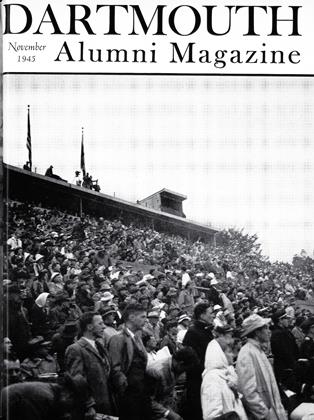byVernon Hall Jr. Columbia University Press,1945; 260 pages. $3.00.
Professor Vernon Hall Jr. has written a scholarly and important book dealing with Renaissance literary criticism in Italy, France, and England which was directly affected by the social and political ideas of their age. He shows clearly that the critical thought of the Renaissance was influenced in important ways by the social conditions which gave it birth.
Throughout this essay we find the aristocratic, hierarchical society is accepted as the norm by most of the literary critics. In fact we find a distinct attitude of scorn for the people and Professor Hall shows clearly that there was no democratic thinking evident in the literary criticism and that it did not influence in any real degree the thinking of the time.
Both Calvin and Luther were aristocratic in their thinking and neither had any idea of popular rights. Italy, France, and England were absolutist in politics; the political teaching of the Church was absolutist then even more so than now. The ideal toward which the critics strove was an international cultural order which would disregard national boundaries and which in essence was thoroughly aristocratic.
Politically the Renaissance critics were in the vanguard of the movement which looked forward to the establishment of order and stability through the agency of the absolute monarchy.
Rome, imperial and authoritarian, loomed largely in their minds. Virgil was deified and although Aristotle, supreme ancient classical critic, had placed tragedy above all other forms the Renaissance critics, save for Casteivetro, placed the epic in the supreme position because it taught what the Renaissance critics wanted taught—the idea of the, as Mr. Hall calls it, monadic state. The critical doctrine of Imitation was only an attempt to create this moral-political ideal of ancient Rome in Renaissance society, as well as to create first a standard of Latin eloquence and then one of vulgar. Their foremost critical problem was to reestablish the vernacular as a literary language.
In the matter of diction the critics of England, France and Italy were agreed that the standard should be the speech of the upper classes. For the purposes of composition three styles, the high, the middle, and the low were recognised, a division which corresponded roughly with the class division of society. The style that should be employed was determined by the nature of the subject matter. Low comedy dealing with the people would employ the third style in diction.
The Renaissance critics did succeed in establishing the national vernacular and in giving form to the literature and life of their own and the following age.
Professor Hall writes clearly and well and his volume is an important addition to the work of Spingarn, Saintsbury, Symonds, and other writers on the period. It seemed to me as I read it that this volume throws light also on the current political attitudes particularly of France and Italy. Classicism, Royalism, Catholicism still are a powerful triumvirate, and Europe has by no means done with them. Professor Hall's book will help the reader to comprehend particularly the subtle cultural background of Fascist Italy, and Vichy France.
 View Full Issue
View Full Issue
More From This Issue
-
 Article
ArticleVISUAL AIDS TO LEARNING
November 1945 By C. N. ALLEN '24, -
 Class Notes
Class Notes1929
November 1945 By F. WILLIAM ANDRES, T. TRUXTUN BRITTAN JR. -
 Article
ArticleLaureled Sons of Dartmouth
November 1945 By H. F. W. -
 Class Notes
Class Notes1918
November 1945 By ERNEST H. EARLEY, DONALD L. BARR -
 Class Notes
Class Notes1945
November 1945 By ARTHUR NICHOLS -
 Article
ArticleThe Undergraduate Chair
November 1945
HERBERT F. WEST '22
-
 Article
ArticleHanover Browsing
October 1936 By HERBERT F. WEST '22 -
 Article
ArticleHanover Browsing
March 1939 By HERBERT F. WEST '22 -
 Article
ArticleSuggestions
April 1940 By HERBERT F. WEST '22 -
 Article
ArticleHanover Browsing
February 1941 By HERBERT F. WEST '22 -
 Article
ArticleHanover Browsing
June 1941 By HERBERT F. WEST '22 -
 Article
ArticleHanover Browsing
February 1956 By HERBERT F. WEST '22
Books
-
 Books
BooksIN A SPERM WHALE'S JAWS
October 1954 By ALEXANDER LAING '25 -
 Books
BooksMODERN BOOK COLLECTING FOR THE IMPECUNIOUS AMATEUR
October 1936 By Harold Goddard Rugg '06 -
 Books
BooksA SHORT HISTORY OF MIDWIFERY.
MAY 1965 By JOHN W. SCHLEICHER '40, M.D. -
 Books
BooksPop Fiction
MARCH|APRIL 2019 By JULIA M. KLEIN -
 Books
BooksCIVIC RIGHTEOUSNESS AND CIVIC PRIDE
January 1915 By Newton Marshall Hall -
 Books
BooksSPEARHEADS FOR REFORM, THE SOCIAL SETTLEMENTS AND THE PROGRESSIVE MOVEMENT 1890-1914.
JANUARY 1968 By PHILIP S. BENJAMIN


